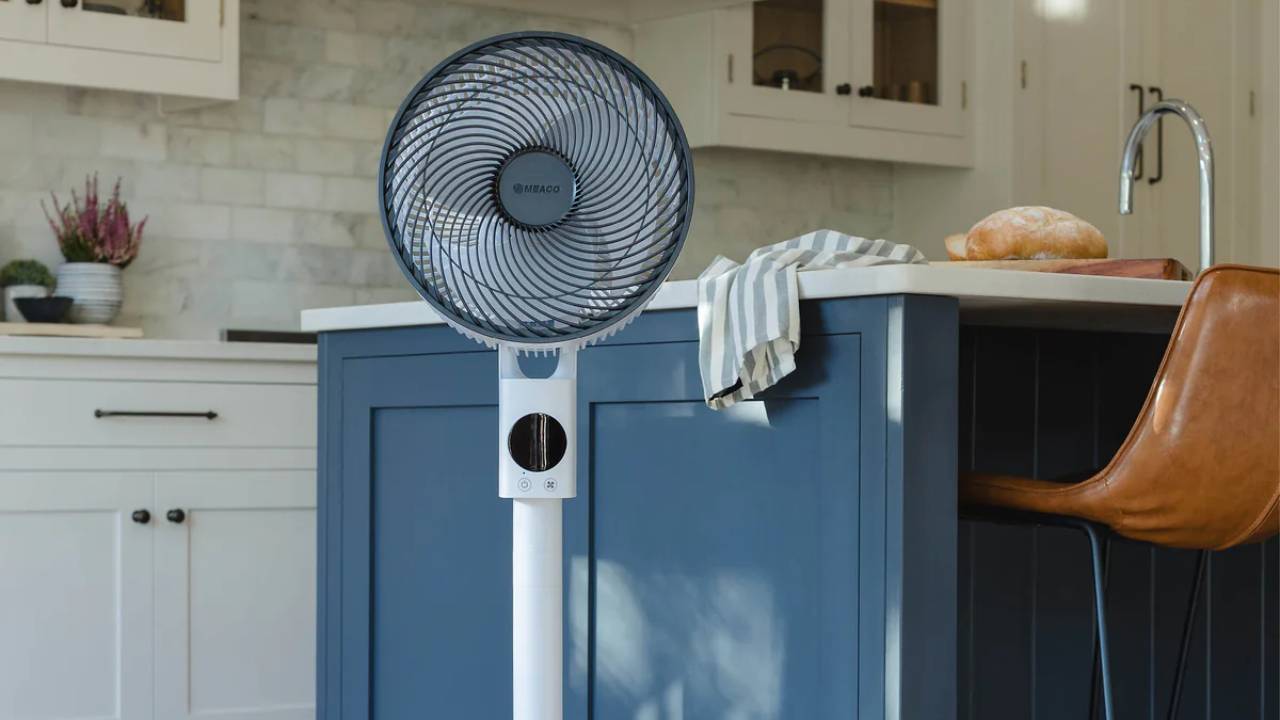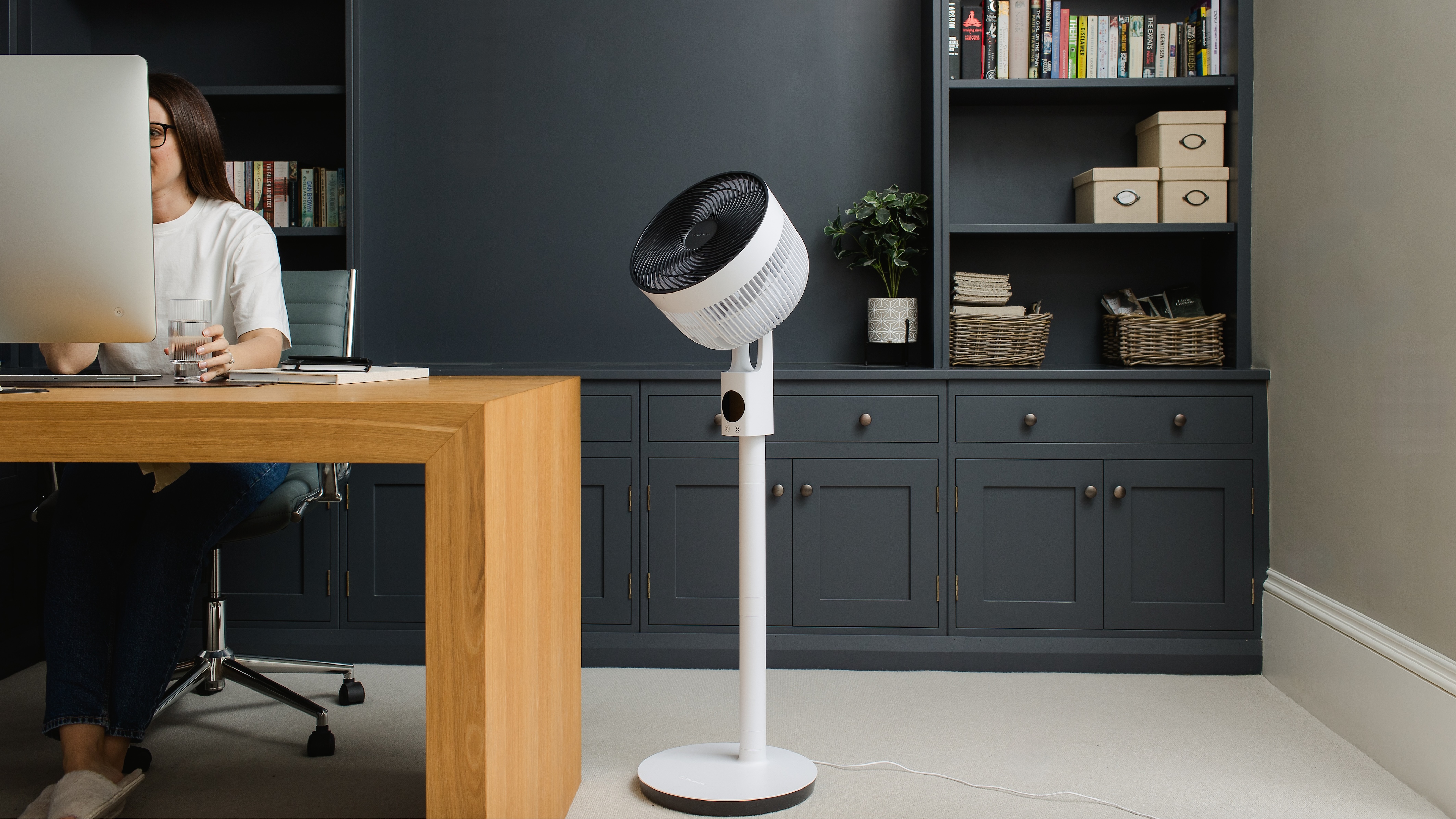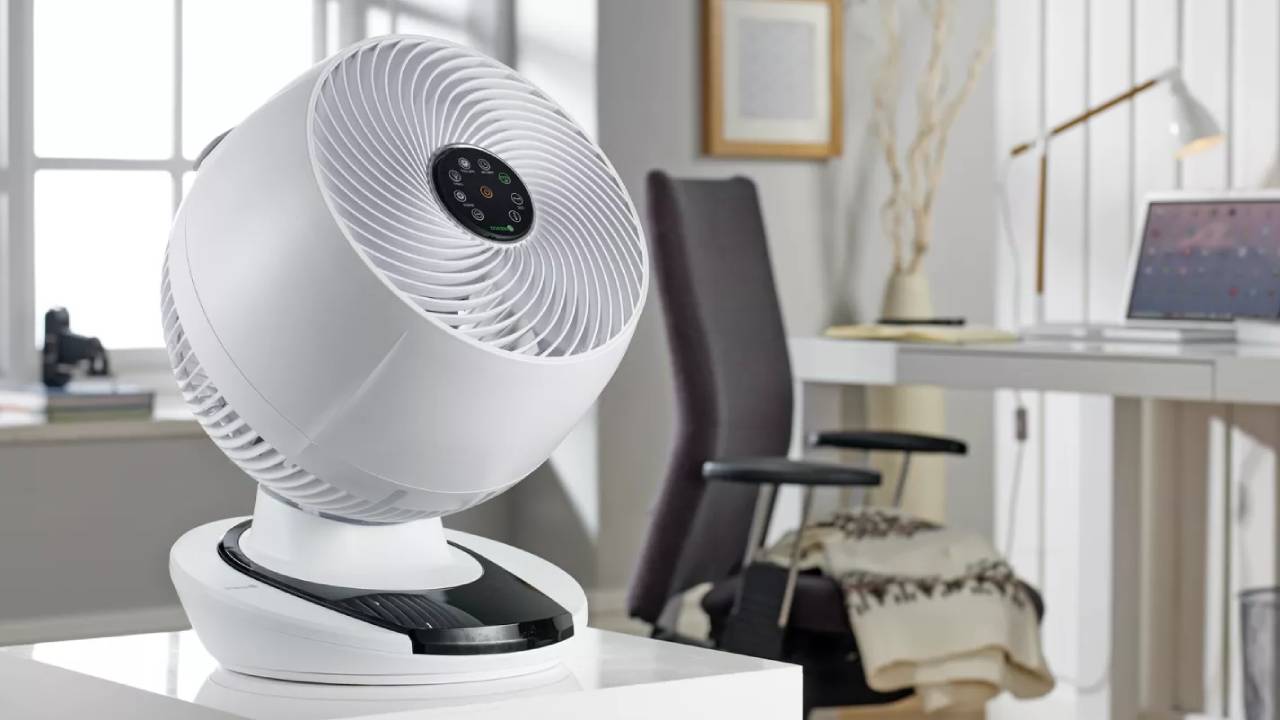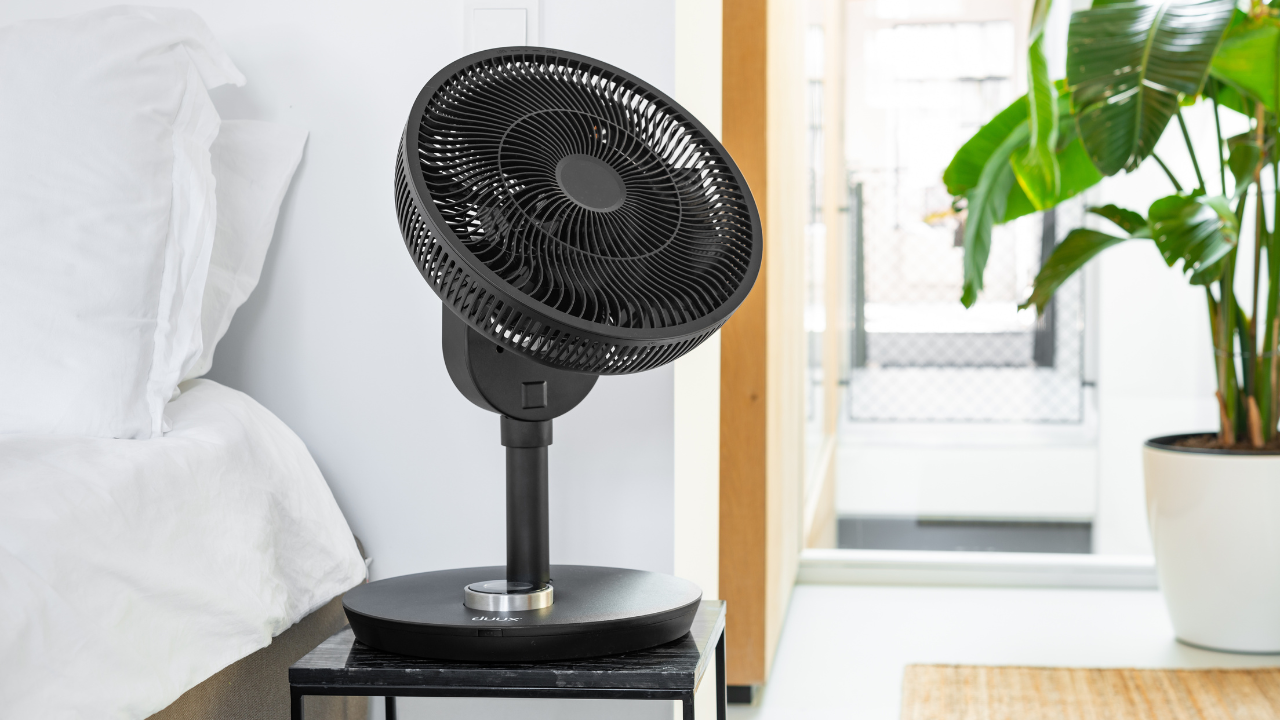
We’re fully into the swing of summer, so if you haven’t invested in one of the best fans or air circulators yet, we can only imagine how sticky and uncomfortable you’ve been feeling! However, it can be hard to decide what kind of cooling device you need for your home, especially if you live in a country where you’re likely to only use it for a few months out of the year.
When it comes to buying a fan, there are many things to consider, like size, speed options, air projection and cost. Yet maybe a fan isn’t the best choice for cooling yourself and your home and you should be looking at an air circulator instead. But what exactly is an air circulator? Is it better or worse than a fan? And what do I need to make my home less hot and sweaty?
To find out more, I spoke to Chris Michael, Managing Director at Meaco who explained the difference between fans and air circulators and shared his insights to help you decide what’s best for your needs.
Fans vs air circulators: what they are and how they work
Before we dive in, it’s important to understand what a fan and air circulator is and how they work. As Michael explains, “fans are designed to provide direct airflow to cool specific areas or individuals. They create a focused stream of air in a single direction, making them perfect for spot cooling.”
In comparison, air circulators are built to move air throughout an entire room which “results in even air distribution and a more consistent temperature,” explains Michael. “Unlike fans, air circulators move air in multiple directions, eliminating hot spots and ensuring a comfortable environment.”

All of this being said, it’s important to note that fans and air circulators don’t actually cool the air in a room – no, really. Both work to move air around the room, and when air moves over the skin, it enhances the evaporation of sweat. As Michael explains, “the process of evaporation requires heat energy, which is taken from your skin, thus making you feel cooler. Moving air increases the rate at which heat is transferred away from your body. Fans help to disperse this layer, allowing more heat to escape from your body, enhancing the cooling sensation.”
So, while a fan or air circulator can make you feel cooler, an AC unit or portable air conditioner is better recommended for altering the temperature of a room.
Fans vs air circulators: key differences
While fans and air circulators may look the same, the key differences between them are their design and air projection. Most fans – unless they’re one of the best Dyson fans – have a simple design where the blades are enclosed behind a grill and rotate on a single axis to deliver a direct breeze. In comparison, an air circulator has a more advanced design than a fan which typically includes oscillating and tilting mechanisms for better air flow and quality.
When asked about the key differences between the two, Michael comments that “While fans provide a direct personal cooling effect, air circulators are ideal for whole-room air movement. Fans create a localised breeze, whereas air circulators offer widespread and balanced airflow. Additionally, air circulators often come with features like variable speed settings, remote control operation, adjustable arcs, making them more versatile than fans.”

Fans vs air circulators: which should you choose?
When deciding between a fan and an air circulator, it’s important to think about your specific needs, like cooling, noise levels, airflow and other features and functionality – as we’ll explain below.
Cooling: If you’re looking for direct or personal cooling, a fan is the better choice as they offer a more concentrated and focused airflow. But if you want the cooling spread across a room evenly, Michael points in the direction of an air circulator.
Noise Levels: Fans, air purifiers and other cooling devices can make quite a bit of noise which can disturb your sleep and concentration. Fans are typically a lot loud than air circulators, so if you want something for a quiet environment, Michael recommends an air circulator that has brushless DC motors, like the Meaco Sefte 10 Air Circulator.
Airflow: As explained above, fans offer close proximity cooling, so their airflow might not be as strong or projected as an air circulator. In comparison, Michael states that “ air circulators are equipped with deep draw fan blades that propel more air, further, ensuring effective circulation throughout the room, bouncing it off walls and ceilings, to maintain a more comfortable environment.”
Features and Functionality:
Fans tend to have pretty basic features like speed settings, whereas air circulators offer more advanced user-friendly options. “For example, air circulators like Meaco’s new Sefte range have a digital display, glow-in-the-dark remote control, and a range of settings to better customise airflow.”

Fans vs air circulators: final thoughts
Choosing between a fan and an air circulator is completely dependent on your needs, environment and budget. But in general, “if you need focused, direct cooling for personal comfort, a traditional fan may suffice. However, for quieter operation, better air circulation, and enhanced features, an air circulator is the superior choice,” summarises Michael.
Meaco is the UK's most popular air treatment brand and offers a range of fans, air conditioners, purifiers, dehumidifiers and other cooling devices.







